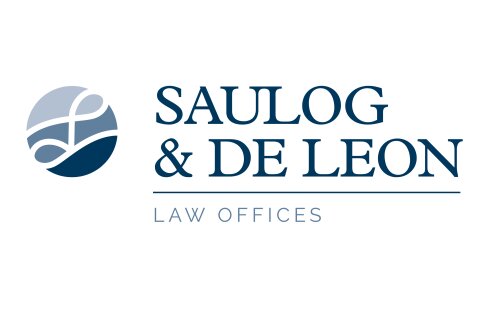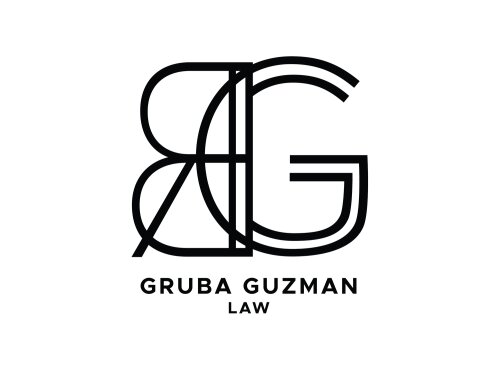Best Energy Regulatory Law Lawyers in Makati City
Share your needs with us, get contacted by law firms.
Free. Takes 2 min.
List of the best lawyers in Makati City, Philippines
About Energy Regulatory Law in Makati City, Philippines
Energy Regulatory Law in Makati City, as part of the broader Philippine energy legal framework, governs the generation, transmission, distribution, and utilization of energy resources. Makati, being the financial hub of the Philippines, is home to major corporate headquarters, multinational companies, and various energy sector stakeholders. Energy regulations here aim to ensure reliable electricity supply, promote fair competition among providers, protect consumer rights, and encourage the use of sustainable and renewable energy sources. National laws, such as the Electric Power Industry Reform Act (EPIRA) of 2001, are implemented locally by agencies like the Energy Regulatory Commission (ERC) and are enforced in Makati City through close cooperation with distribution utilities, business establishments, and local government units.
Why You May Need a Lawyer
Legal issues in the energy sector can be complex due to the technicality and the range of stakeholders involved. You may need a lawyer specializing in Energy Regulatory Law in Makati City if you are:
- An energy company looking to comply with licensing and regulatory requirements
- A property developer or business dealing with power supply contracts and infrastructure permits
- A consumer facing billing disputes, service interruptions, or unfair practices by utility providers
- An investor interested in the renewable energy sector or independent power projects
- A community or homeowner’s association involved in issues related to electricity distribution or rates
- Encountering penalties, notices, or compliance orders from government agencies such as the ERC
Legal assistance ensures your interests are protected, that you understand your rights and obligations, and that you can navigate the rules set by both national and local regulatory bodies.
Local Laws Overview
Energy Regulatory Law in Makati City primarily follows national statutes, including the EPIRA Law and Renewable Energy Act of 2008. Key elements include:
- Licensing and Registration: All participants in the power industry, such as generation companies, transmission providers, distribution utilities, and suppliers, must secure proper accreditation and comply with ongoing regulatory standards.
- Tariff Setting: The Energy Regulatory Commission regulates electricity rates and investigates complaints about rate overcharging or unjust pricing.
- Service Quality: Utilities and distributors must follow rules on quality and continuity of service, addressing brownouts, outages, or unsafe installations.
- Renewable Energy Incentives: Businesses and homeowners wishing to adopt solar, wind, or other renewable technologies can apply for incentives or net metering arrangements, subject to government approval.
- Consumer Protections: The law obligates utilities to handle complaints, provide transparent billing, and inform customers about power interruptions and scheduled maintenance.
- Environmental Compliance: Projects that impact the environment must comply with both energy regulations and local environmental ordinances in Makati City.
Local ordinances may address power distribution within the city, impose additional standards on electrical safety, or promote sustainable initiatives specific to Makati's urban environment.
Frequently Asked Questions
What is the role of the Energy Regulatory Commission in Makati City?
The Energy Regulatory Commission (ERC) regulates and oversees the electricity sector nationwide, including in Makati City, by issuing licenses, enforcing compliance, setting rates, and resolving disputes between consumers and providers.
Do I need a permit to put up solar panels in my Makati property?
Yes, installation of solar panels for residential or commercial use requires permits and potential coordination with your utility provider, as well as compliance with local building codes and the Renewable Energy Act.
What should I do if I have a dispute over my electricity bill?
You should first notify your service provider to seek clarification. If unresolved, you can lodge a formal complaint with the Energy Regulatory Commission or local government consumer affairs office.
Who is responsible for fixing power outages in Makati City?
Power outages are usually handled by the local distribution utility, such as Meralco in Makati. For prolonged or unresolved outages, complaints can be filed with the ERC or the local government.
Can I choose my electricity supplier in Makati City?
Depending on your level of electricity consumption, some commercial and industrial customers may choose suppliers under the Retail Competition and Open Access (RCOA) system, while residential customers typically receive service from the authorized distribution utility.
What are my rights as an electricity consumer in Makati City?
Consumers have the right to reliable service, fair rates, accurate billing, clear information about outages and service interruptions, as well as procedures for lodging complaints.
Are there incentives for using renewable energy in Makati?
Yes, both national and local incentives exist such as tax holidays, duty-free importation of equipment, and net-metering benefits for qualified renewable energy installations.
How are electricity rates determined in Makati City?
Electricity rates are set and periodically reviewed by the ERC based on industry costs, infrastructure investments, and consumer rates, with opportunities for public hearings and consumer feedback.
What permits are needed to operate an energy business in Makati?
You typically need a business permit from the Makati City local government, plus accreditation and authorization from the Department of Energy and the ERC, depending on your business type.
Can foreign companies invest in the Makati energy sector?
Foreign investment is allowed under certain conditions set by laws like the Foreign Investments Act and energy sector regulations, but limitations may exist based on the type of energy project and ownership structures.
Additional Resources
If you require more information or assistance, consider reaching out to these agencies and organizations:
- Energy Regulatory Commission (ERC): The primary agency regulating the power industry, handling licensing, consumer complaints, and rate reviews
- Department of Energy (DOE): Sets policies and implements national energy programs, including renewable energy
- Makati City Business Permits and Licensing Office: For local permits, clearances, and inspections
- Local distribution utility (e.g., Meralco): For direct customer service issues, billing, and technical inquiries
- Philippine Independent Power Producers Association (PIPPA): For industry developments and networking
- Consumer rights organizations: For advocacy and dispute support
Next Steps
If you need legal assistance with Energy Regulatory Law in Makati City, start by identifying your specific issue or concern. Gather all relevant documents, communications, or notices related to your energy matter. Seek initial consultations with lawyers or firms specializing in energy law - they can assess the facts, explain your rights, provide guidance on compliance or dispute resolution, and represent you before government agencies or courts if necessary. Early legal advice can help prevent costly mistakes and ensure you navigate the regulatory process smoothly. Stay informed by monitoring updates from relevant government agencies, and do not hesitate to follow up persistently as needed.
Lawzana helps you find the best lawyers and law firms in Makati City through a curated and pre-screened list of qualified legal professionals. Our platform offers rankings and detailed profiles of attorneys and law firms, allowing you to compare based on practice areas, including Energy Regulatory Law, experience, and client feedback.
Each profile includes a description of the firm's areas of practice, client reviews, team members and partners, year of establishment, spoken languages, office locations, contact information, social media presence, and any published articles or resources. Most firms on our platform speak English and are experienced in both local and international legal matters.
Get a quote from top-rated law firms in Makati City, Philippines — quickly, securely, and without unnecessary hassle.
Disclaimer:
The information provided on this page is for general informational purposes only and does not constitute legal advice. While we strive to ensure the accuracy and relevance of the content, legal information may change over time, and interpretations of the law can vary. You should always consult with a qualified legal professional for advice specific to your situation.
We disclaim all liability for actions taken or not taken based on the content of this page. If you believe any information is incorrect or outdated, please contact us, and we will review and update it where appropriate.
















